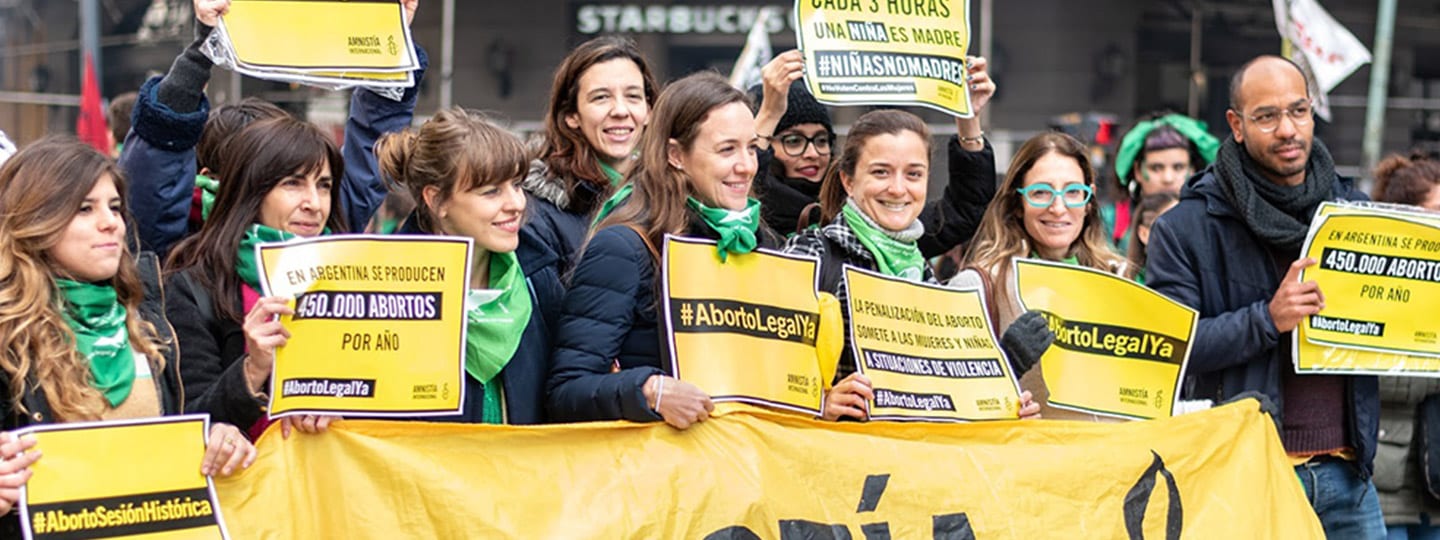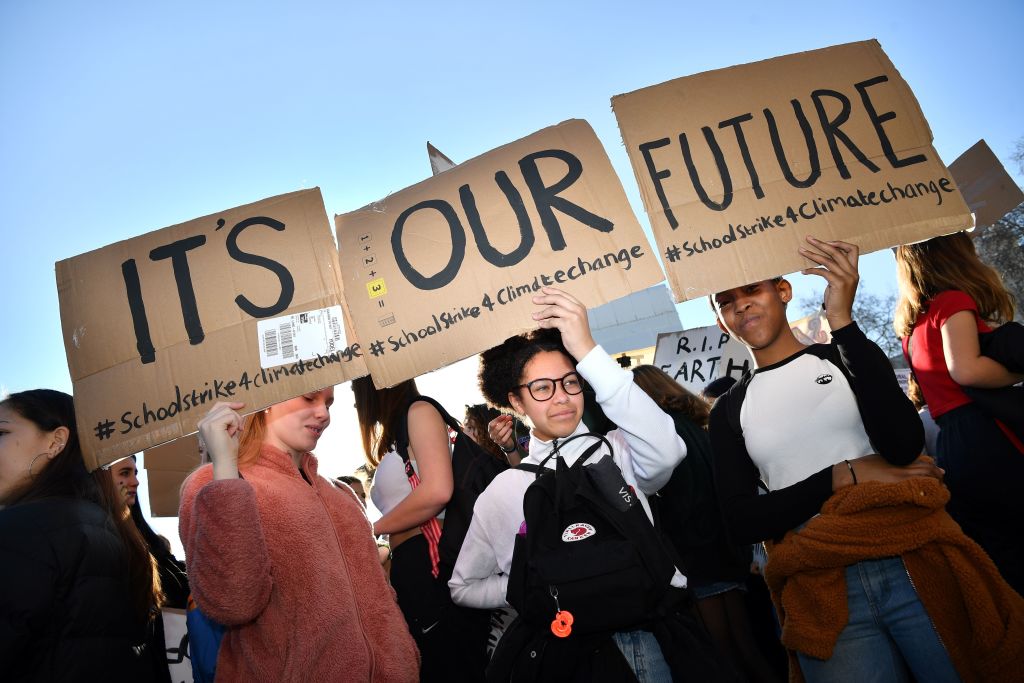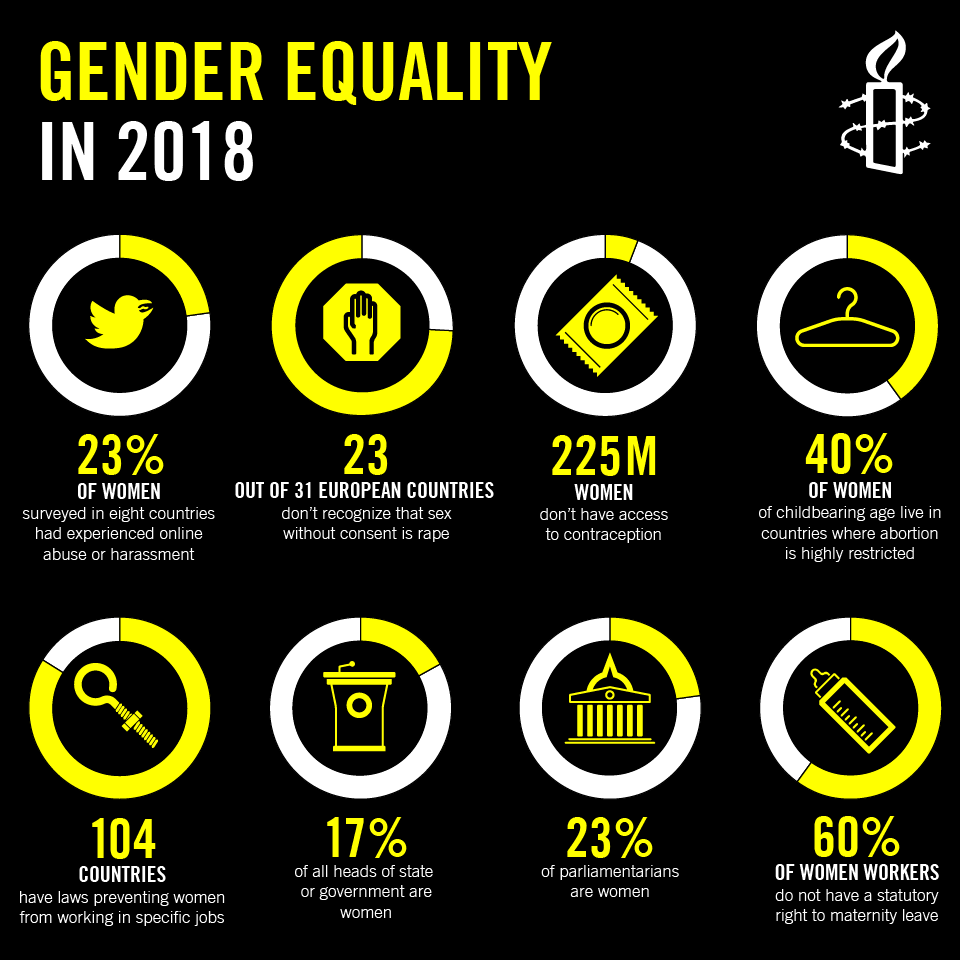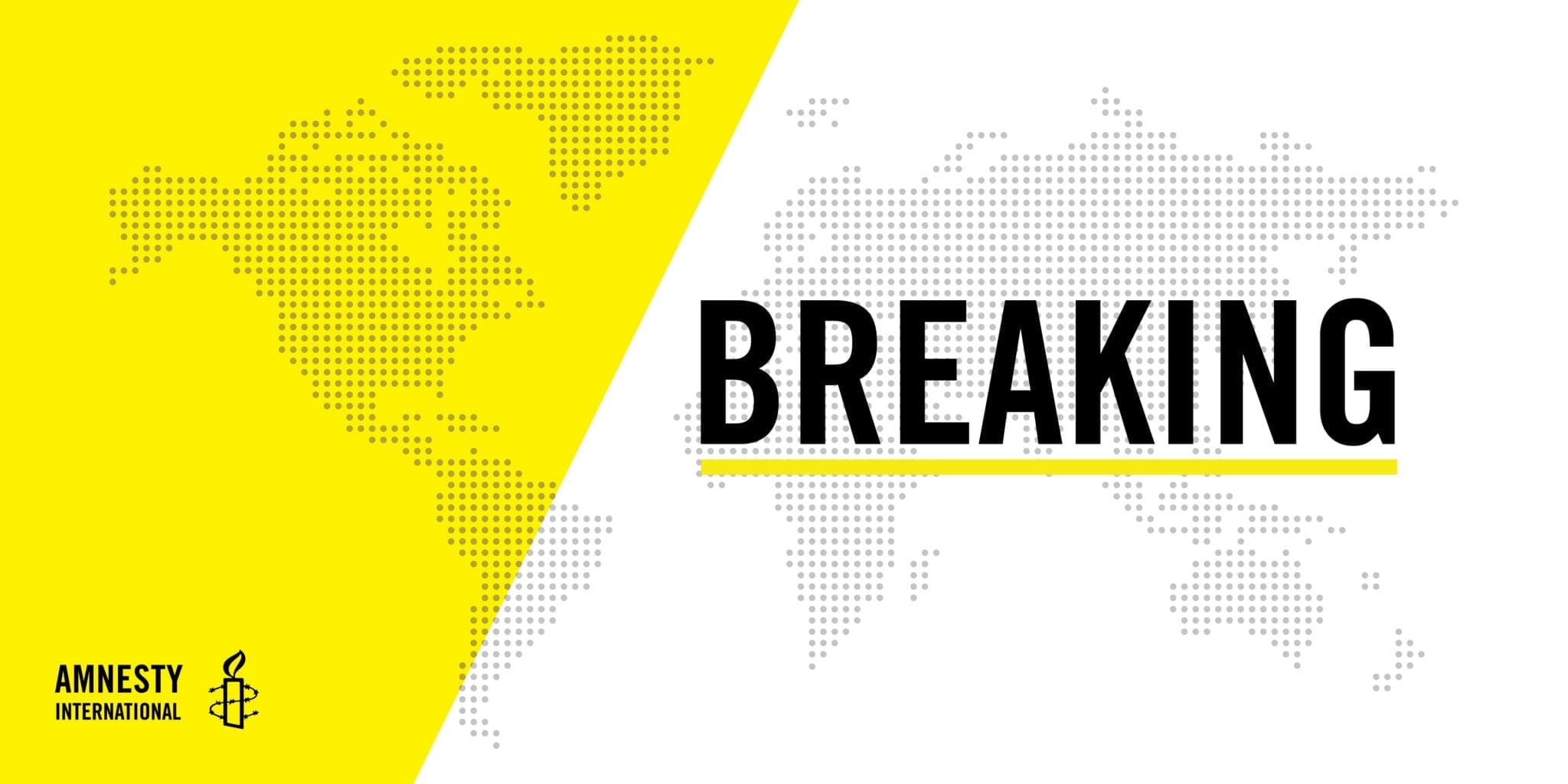The following information is based on the Amnesty International Report 2021/22. This report documented the human rights situation in 149 countries in 2021, as well as providing global and regional analysis. It presents Amnesty International’s concerns and calls for action to governments and others.
ARGENTINA 2021
The Covid-19 pandemic continued to exacerbate existing inequalities amid the country’s ongoing economic crisis. Violence against women and girls and the lack of effective measures to address it remained a serious concern. There were challenges regarding implementation of the 2020 law legalizing abortion. Impunity persisted for enforced disappearances and excessive use of force by law enforcement officials.
Background
The country’s profound economic and social crisis continued. According to official figures, by June, 40.6% of the population was living in poverty and the unemployment rate was 8.6% in the third trimester of the year.
Strict controls on movement, reinstated in response to the second wave of Covid-19, left hundreds of Argentinians stranded abroad, without access to adequate healthcare or hygiene and, in some cases, family reunification.
Healthcare and essential workers continued playing a key role in the response to Covid-19. By the end of the year 71.9% of the population had been fully vaccinated.
Women’s rights
The pandemic exacerbated existing gender inequalities. For example, unpaid domestic and care work that would represent 16% of GDP if it were paid, increased to 21.8% as a result of the pandemic, according to official data. Women performed over 76% of domestic and care work in the country.
In July, Argentina recognized identities beyond the binary categories of gender in the registration and identification systems (Decree No. 476/21). Congress passed Law 27,636 recognizing a quota for transgender employment.
Violence against women and girls
According to civil society monitoring groups, there were at least 256 femicides in 2021. In numerous cases the victim had previously filed complaints against the perpetrator, restraining orders had been violated and the perpetrator was a member of the security forces. These cases demonstrated the lack of effective public policies and measures to address gender-based violence and the absence of a gender perspective among law enforcement officials.
Sex workers’ movements reported an increase in harassment and arbitrary detentions by the City of Buenos Aires security forces in the context of Covid-19 restrictions.
Sexual and reproductive rights
During the first year after Congress approved the law for the decriminalization and legalization of abortion within the first 14 weeks of pregnancy, challenges persisted over implementation. No jurisdiction, either national or local, undertook a mass campaign to provide information on access to abortion. There were reports of abusive use of conscientious objection clauses, delays in public and private sector facilities and the collapse of the national 0800 hotline for abortion consultations and referrals.
By December, at least 37 judicial actions had been initiated against the abortion law. However, the law remained in force.
According to official data, every four hours a girl aged under 15 gives birth in Argentina. Most are forced to carry to term pregnancies that are the result of rape.
Analysis from an official survey (Aprender 2019) revealed that only 4% of secondary school students had access to all the basic and mandatory content of comprehensive sexuality education.
Indigenous peoples’ rights
Indigenous peoples continued to face serious difficulties in accessing collective land rights. The Executive Branch approved the extension of Emergency Law 26,160 ordering the suspension of evictions of Indigenous communities. However, the National Institute for Indigenous Affairs barely made any progress in carrying out the survey of Indigenous territories mandated by the same law, with just 43% of the survey completed by the end of the year.
Impunity
Trials before ordinary civilian courts continued for crimes against humanity committed under the 1976-1983 military regime. Between 2006 and September 2021, 264 rulings were handed down, bringing the total number of convictions to 1,044 and acquittals to 162.
The investigation into the disappearance and death of Facundo Astudillo Castro failed to make significant progress by the end of the year. His body was found 107 days after he was reported missing in late April 2020. He was last seen at a police checkpoint in Buenos Aires province.
A decision by the Supreme Court in the case of the possible enforced disappearance of Santiago Maldonado remained pending at the end of the year. His body was found in 2017 in a river on Mapuche territory in Chubut province 78 days after the security forces had closed off the area.
Concerns remained over the lack of institutional public policies on effective searches for missing persons and investigations of alleged enforced disappearances.
A further autopsy was performed on Mauro Coronel, who was tortured by police in Santiago del Estero province in May 2020. By the end of the year, no one had been charged in connection with his death.
Excessive use of force
On 17 November, 17-year-old Lucas González was shot and killed by members of the Buenos Aires City Police after plain-clothes officers in an unmarked car intercepted the car in which he was travelling with three friends, who also reported they were subjected to torture and ill-treatment.
On 11 June, Josué Lagos, a 23-year-old member of the Qom Indigenous people was shot by a member of the Chaco province security forces during a police operation. The Special Criminal Prosecutor’s Office for Human Rights ordered the release of the only person charged in the case on grounds that there was insufficient evidence to detain him further. The investigation continued. The Comprehensive Approach to Institutional Violence by police officials in the Security and Penitentiary Services Bill remained pending before the Lower House at the end of the year.
Refugees’ and migrants’ rights
In May, the executive branch repealed Executive Order 70/2017, which had introduced serious regressive measures regarding migrants’ rights.
Migrants, refugees and asylum seekers with limited access to the formal labour market and adequate housing were among those most affected by Covid-19.
Border restrictions continued to affect the resettlement of refugees through Argentina’s community sponsorship-based Syria Programme. Five Syrian refugee families with approval to travel to Argentina had their resettlement stalled and new community sponsorship applications were suspended.
The government failed to establish a new programme that would expand the resettlement opportunities to refugees of other nationalities.
Failure to tackle climate crisis
Although during the COP26 the executive branch announced its commitment to improve by almost 26% its nationally determined contribution (NDC) compared to its 2016 NDC and to achieve carbon neutrality by 2050, these targets remain insufficient as they fail to align with the 1.5°C global warming commitment. Concerns remained over the failure to enact a law on conserving wetlands or to reform the hydrocarbons law, which promotes fossil fuels.







